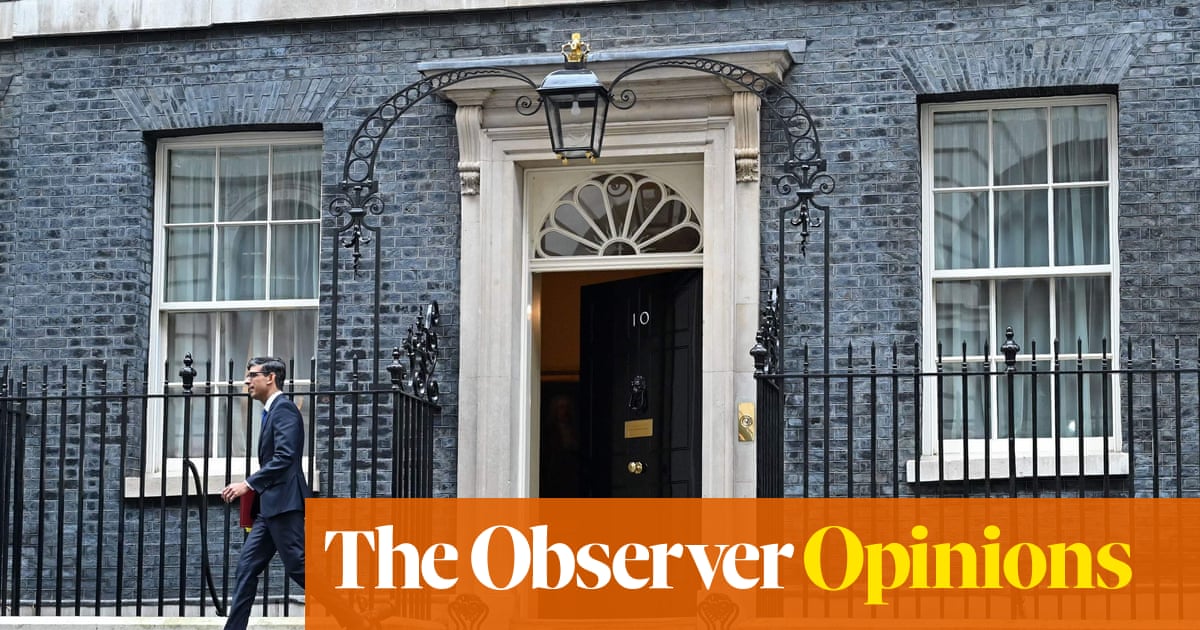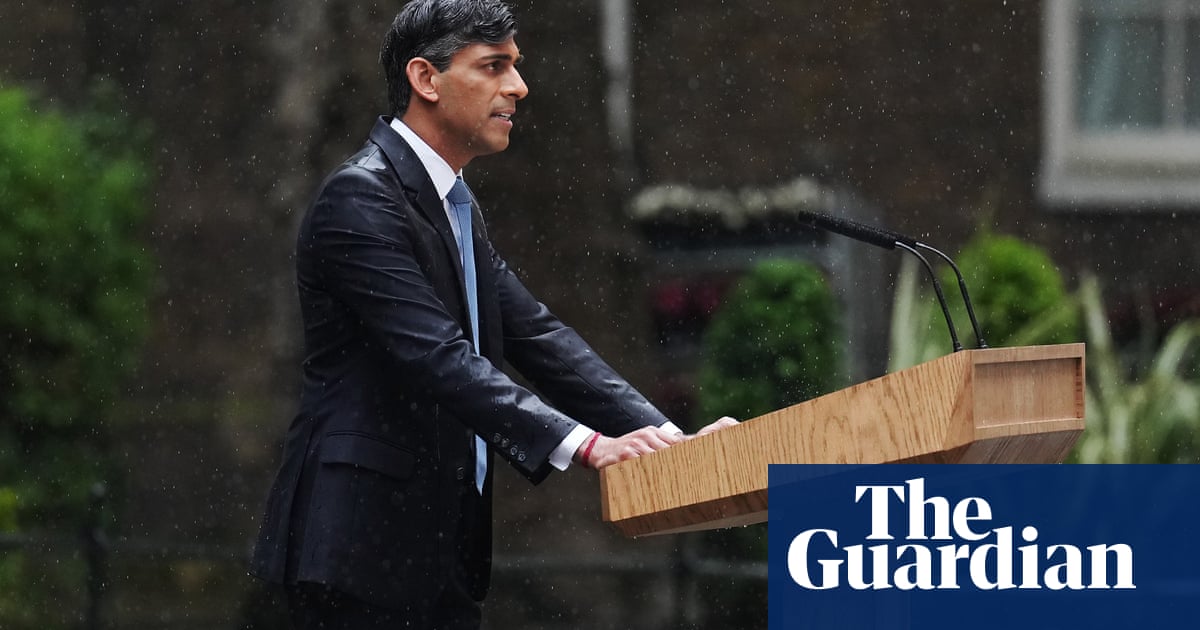
This week, Rishi Sunak will clock up – celebrate wouldn’t be the mot juste – his 100th day at Number 10. It is an important milestone for a leader when judgments about his performance start to crystallise. Tory MPs gave him the top job in reaction to the manic chaos generated by his predecessors and he sold himself as the doctor who would cure the maladies that Liz Truss and Boris Johnson had inflicted on the country. He would restore confidence in the government’s fiscal competence after the lunacies of the brief reign of Mad Queen Liz and rebuild trust in the government’s ethical integrity after the moral squalor presided over by Bad King Boris.
On the first mission, Mr Sunak has succeeded to the limited extent that financial markets think Britain is now under more reliable management, but at the price of jacking up taxes to an even higher level and while presiding over waves of industrial unrest the like of which we’ve not seen in this country for decades.
It ought to have been more straightforward for him to draw a line under the degeneracy of the Johnson era. When it comes to integrity in public life, the prime minister is the prime decision-maker. He writes the rules about how ministers should behave and he is the chief invigilator of their conduct. He hires and he fires. He has the power to demand high standards, to ensure that they will be policed robustly and to remove transgressors. This doesn’t require government spending - it requires a moral compass and the determination to do the right thing. He also had an incentive to disinfect the Tory party because he arrived at Number 10 promising a purist regime. “This government will have integrity, professionalism and accountability at every level,” he declared in his first speech outside Number 10. “Trust is earned and I will earn yours.”
I thought at the time that only one of two things could be true. If Mr Sunak were serious, he was going to give the Tory party the shock treatment it needed by demanding an end to the debasement of standards it had indulged for too long. Or he would flunk it and there would be a continuation of the sleaze that is historically the product of protracted periods of Conservative rule.
An early sign that he would flunk it was his foot-dragging about naming a new adviser on ministerial conduct, a position left vacant after the two previous holders resigned in disgust with Mr Johnson. When Mr Sunak eventually made the appointment, the role went to Sir Laurie Magnus, a former banker and quango head. The authenticity of the independence of the “independent adviser” was left moot because Mr Sunak retained a veto over what he could investigate and maintained the right to ignore any sanctions he might propose. Sir Laurie has already been tasked with one inquiry – into Nadhim Zahawi.
Mr Sunak’s 100th day in office will be marked with the Tories once again swirled in a poison cloud of allegations relating to rule-breaking, conflicts of interest, bullying of officials and money, all so horribly familiar from the Johnson years. We are not talking about the misdeeds of some miscreant backbenchers that Tories can try to shrug off as unrepresentative of the party as a whole. Those under investigation are the chairman of the Tory party, the Conservative-appointed chairman of the BBC and the deputy prime minister.
The latter, Dominic Raab, is the subject of an investigation by Adam Tolley KC into many formal complaints that he mistreated officials in several departments. The public appointments commission is looking into Richard Sharp, the BBC chair and Tory donor, who was put forward for the role at the broadcaster by Mr Johnson only weeks after Mr Sharp facilitated discussions about securing an undisclosed £800,000 loan for the then prime minister with a Canadian multimillionaire as the guarantor. After terms were agreed, the three men reportedly dined à trois at Chequers. Neither Mr Johnson nor Mr Sharp thought it appropriate to mention that some might see a conflict of interest. The party chairman, Mr Zahawi, has finally admitted, only under intense pressure and after previously threatening libel actions against those who brought this issue to light, that he was obliged to pay a penalty, believed to be in excess of £1m, as part of a £5m settlement with HMRC for unpaid tax. The head of the HMRC has since commented that there are no penalties for “innocent errors”. Most voters will not follow every corkscrew turn of each affair, but they will get the overall impression that the reek of Tory scandal continues to sweat from this government.
The consensus among Conservative MPs is that Mr Zahawi’s career is circling the plughole. If Sir Laurie’s inquiries somehow conclude that he’s in the all clear, it will be rightfully ridiculed as a whitewash. If Sir Laurie finds him in breach of the ministerial code, but the prime minister chooses not to fire the party chair, Mr Sunak will make himself utterly risible. So even Tory MPs who are well-disposed to Mr Zahawi cannot see him surviving. Waiting for Sir Laurie to pronounce is only prolonging the damage to their already shredded reputation.
Some Conservative MPs are bewildered that their leader was so slow to register that this scandal would generate a ferocious furore. Fabulously rich Tories trying to shield their family wealth from the taxman is a subject on which Mr Sunak is personally vulnerable. Sir Keir Starmer punched that bruise at the most recent session of prime minister’s questions when he taunted the Tory leader: “We know why he was reluctant to ask (Zahawi) about his family finances and tax avoidance.” Outrage about money scandals in politics is always fiercer when the public are feeling the pinch in their own lives. The Zahawi affair is the more toxic for the government when taxes on much less affluent folk are being ratcheted up, voters are in the jaws of a cost of living crunch and there are widespread strikes in essential services because the government says the exchequer doesn’t have the money to give better pay rises to nurses and other public sector staff.
His handling of this has made Mr Sunak look indecisive and clueless. The first reports about Mr Zahawi being investigated by HMRC emerged last summer. Much of the digging has been done by the tax lawyer Dan Neidle, who is to be highly commended for refusing to be intimidated by menacing letters from Mr Zahawi’s lawyers. So plenty was already in the public domain before the prime minister made him Tory party chair.
“The issues in question occurred before I was prime minister,” is the best defence Mr Sunak has managed to muster. “No issues were raised with me.” This implies that he failed to get the full truth out of the other man before he appointed him and/or his civil servants didn’t do a proper job vetting his suitability to sit in the cabinet. That makes the prime minister look too feeble to get a grip on his responsibilities, the line that is being remorselessly prosecuted by Labour. It is rare now for Sir Keir to deliver a sentence mentioning the Tory leader that does not include the word “weak”.
The Zahawi affair fits into a pattern of making dreadful judgments about personnel. He gave a seat in cabinet to “Sir” Gavin Williamson even though he had been removed from the top table twice before – only for “Sir” Gavin then to be compelled to resign, pursued by complaints of bullying and accusations from a former deputy that he employed “unethical and immoral” methods when he was chief whip. He brought back Suella Braverman as home secretary just six days after she had been forced to quit for security breaches that violated the ministerial code. He restored Mr Raab to the position of deputy prime minister after the fall of Ms Truss, a choice that is going to blow back on the prime minister very badly if the inquiry into Mr Raab doesn’t clear him of misconduct towards civil servants.
This is not how Mr Sunak hoped to be assessed on his 100th day at Number 10. He looks a terrible judge of character, incapable of mastering his government and untrue to his promise to restore “integrity, professionalism and accountability at every level”. The scandals keep coming and he seems incapable of stemming them. Under Boris Johnson, it was “one rule for everyone else and no rules for us”. Under Rishi Sunak, it appears to be plus ça change.
New prime minister, same old stink.
Andrew Rawnsley is Chief Political Commentator of the Observer












